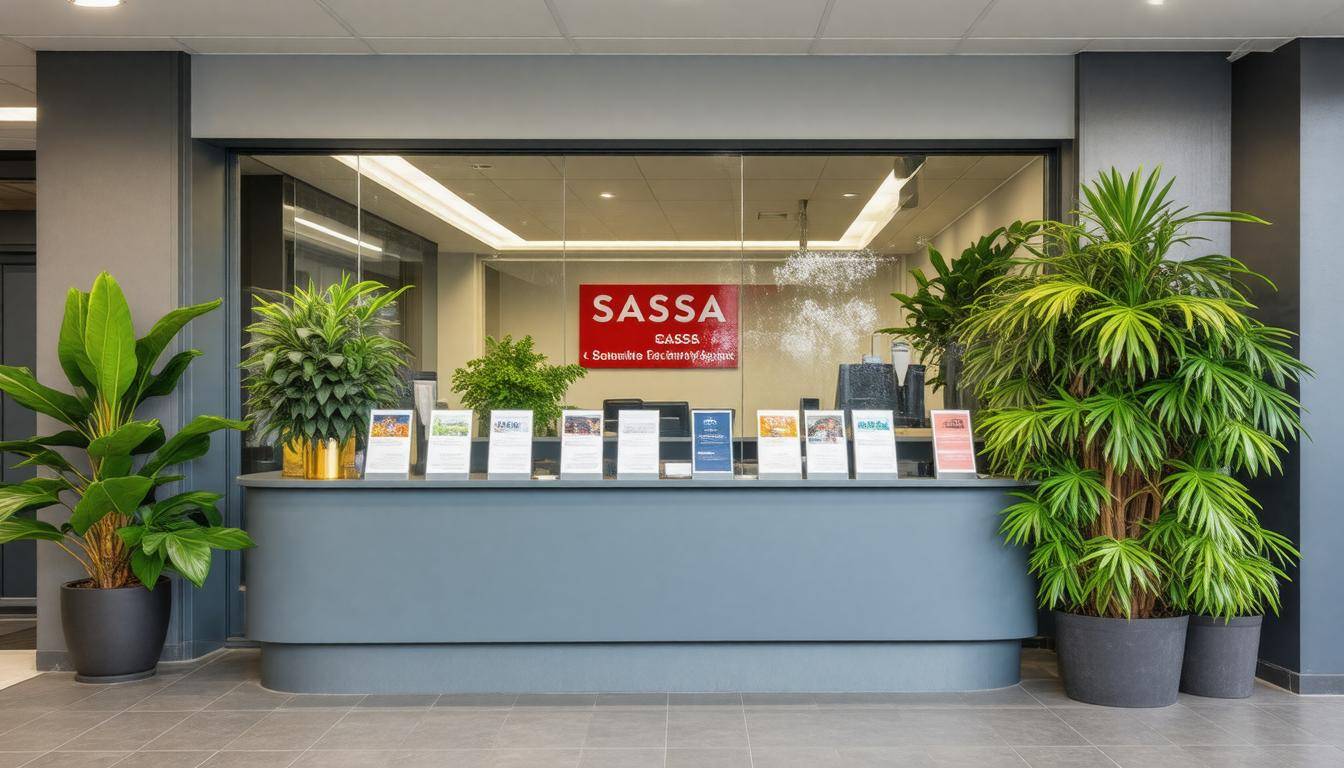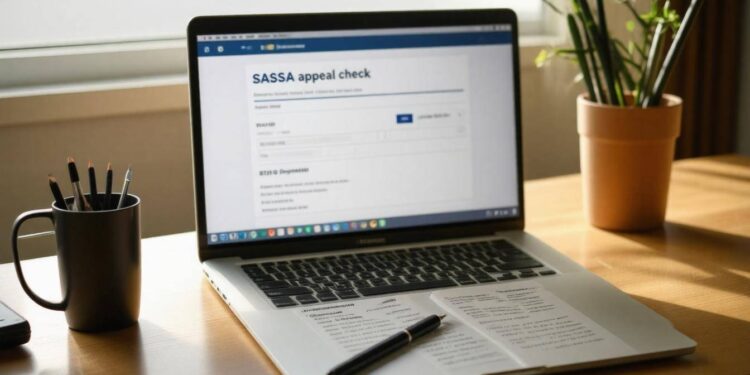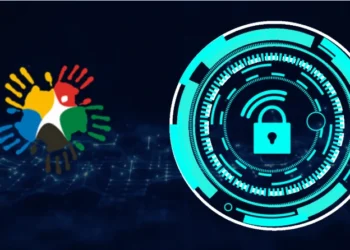Many ask, “How do I check if my SASSA R370 appeal is progressing?” If you’re one of those individuals, you’re not alone. With an increasing number of applications reaching SASSA, knowing how to track your appeal status is crucial.
Whether it’s the uncertainty of waiting for a decision or understanding eligibility requirements, we aim to simplify this journey by breaking down the key steps involved. In this article, we’ll explore everything from application criteria to methods for checking your appeal status, so you can feel more informed and less anxious about the process ahead.
Tracking your SASSA grant status is a straightforward way to keep updated on payment dates and ensure all your banking details are current.
To check the status of your SASSA R370 appeal, you can visit the official SASSA website and enter your South African ID number along with the cell phone number used in your application. Additionally, you can also use their WhatsApp service by sending a message to their dedicated number or call their helpline at 0800601011 for further assistance. This is also an opportune time to verify your account information to avoid any issues with upcoming payment dates.

Eligibility Criteria for SASSA Grants
In order to qualify for the various SASSA grants available, applicants must meet specific criteria tailored to ensure assistance reaches the most deserving individuals.
Understanding these points not only facilitates a smoother application process but also improves your chances of successful approval. With this knowledge at hand, you’ll be empowered to check if you align with the necessary qualifications. Monitoring your SASSA status check regularly is one way a person can stay informed and make necessary adjustments to their account details.
Key Eligibility Points
South African Citizenship: To apply for any SASSA grant, one of the fundamental requirements is that you must be a South African citizen, permanent resident, or refugee. This stipulation is essential as it ensures that resources are allocated primarily to those who have a rightful claim to support within the country.
Next is the Age Requirements, which vary depending on the type of grant. For instance, if you’re applying for the Child Support Grant, you need to be an adult caring for a child under 18 years old. Conversely, if you’re interested in the Old Age Pension, you must be aged 60 or older. These age brackets recognize different societal needs and target assistance accordingly.
Now, let’s talk about Income Thresholds. If you’re considering the R370 SRD grant specifically, here’s what you need to know: Ensuring your income reports accurately reflect your financial situation is vital to maintaining your grant status.
- Your monthly income must not exceed R624.
- Unfortunately, if your income climbs beyond this threshold, that may disqualify you from receiving aid.
Additionally, understanding the rules surrounding Existing Grants is crucial. If you’re already receiving benefits from other social grants—excluding foster child benefits or care dependency—you typically can’t access the R370 SRD grant. Similarly, if you’re receiving NSFAS funding, that also affects your eligibility and means you need to look elsewhere for aid.
Considering these requirements closely, it’s important to grasp what financial documentation is needed and how it influences your application process going forward. Providing accurate banking details can streamline the approval and payment process.
Income and Social Security Requirements
To qualify for the SASSA R370 grant, applicants must show that their monthly income does not exceed the threshold of R624. This amount is set to ensure that assistance is directed towards those who truly need it. Meeting this requirement is essential because earning even a slight amount over the limit may risk disqualification, which can be disheartening during tough financial times.
In addition to demonstrating low income, it’s vital that applicants do not receive other significant forms of social assistance. Maintaining regular SASSA status checks helps you stay on top of your grant status without unexpected interruptions in your account management.
This rule gives preference to individuals who lack access to financial resources. If you’ve been receiving other grants or benefits, ensure you confirm any overlaps—after all, being transparent about your financial situation can significantly boost your chances of approval.
For those applying for the R350 grant, using the available app as a tool to track your application can simplify the process. This app provides features that allow you to check status updates and payment status conveniently.
Required Financial Documents
- Bank Statements: Most applicants are required to submit statements for the last three months. These provide a clear picture of your income and spending patterns, which is crucial data in assessing your financial situation for the R370 status review.
- Pay Slips: It’s imperative for employed individuals to include recent pay slips as solid evidence of earnings and demonstrate whether you are within the income limit. This documentation plays a role in ensuring the accuracy of your payment status.
- Proof of Other Grants: Any existing social security benefits should be documented; this includes anything you currently receive that could influence your eligibility for the R370 grant. Accurate record-keeping in this area is essential as it impacts your financial analysis.
- Affidavits: In circumstances where formal documentation isn’t readily available—perhaps due to sporadic work or informal income—an affidavit can act as a supportive statement regarding your finances and circumstances. This is a valuable tool when traditional documentation is insufficient.
When submitting these documents, accuracy is key. A mismatch in details between what you provide and government records could hinder your application or lead to an outright denial. Therefore, regularly checking the r370 status can alert you to any issues promptly.
Once you’ve gathered all required paperwork confirming your financial standing, it’s time to apply or appeal if needed. Staying organized and maintaining clear records will make this phase easier and more effective. By taking these steps seriously, you’re maximizing your chances of getting the financial help you need while contributing positively to the process by being an informed applicant.
Understanding these requirements sets the stage for navigating the next steps in your application journey, where you’ll learn how to effectively track your status and any updates related to your submission, particularly regarding the R350 grant.
Checking Your Application Status
It’s essential to keep tabs on your SASSA grant application status to understand where you stand in the review process. Knowing whether your application is approved or still under consideration allows you to plan accordingly, especially during times of economic uncertainty. Fortunately, SASSA provides multiple methods for beneficiaries to stay updated on payment status.
Methods to Check Application Status
One of the most straightforward ways to check your application status is through the Online Portal. Simply visit the official SASSA website designed explicitly for status checks. You only need your South African ID number and the cellphone number you provided during your application. Within moments, you’ll receive instant feedback regarding your application’s progress. The beauty of this option lies in its transparency; it puts the power in your hands without requiring assistance from others.
“Keeping track of your application status shouldn’t feel cumbersome; with a few clicks, you can be informed.”
Alternatively, if you’re more inclined towards mobile communication, consider using SASSA’s WhatsApp Service. By sending a simple message that reads “Status” to the designated number 082 046 8553, you’ll receive a quick update straight to your phone.
This method is convenient as it requires minimal effort and allows you to check your status using their app on the go.
If you’d rather speak directly with someone, don’t hesitate to use the Call Center option. Dialing 0800 60 10 11 will connect you with a SASSA representative who can provide verbal updates on your application status, offering an additional tool to ensure you have the necessary information about your payments and application.
Before making the call, make sure you have your ID number handy for verification purposes. This personal touch can often help clarify any questions or concerns you may have about your application’s standing. In case you encounter an issue, having your ID at the ready ensures a swift response.
Additionally, some retailers equipped with SASSA grants payment capabilities can assist in checking application statuses as well.
Visiting these locations can provide another avenue for obtaining information about your application while picking up necessary items. Millions of applicants benefit from these services, adding a reliable income source to their bank account when approved.
Each of these methods has its unique advantages and serves different preferences; selecting one that aligns with your comfort level can make the process easier. Now, let’s explore further options to ensure you’re fully informed in an efficient manner, including utilizing the “check status” button on the official website.
Online Status Verification
The convenience of online verification cannot be overstated. With just a few clicks, applicants can gain clarity regarding their SASSA application status, which is crucial for budgeting and planning finances. This method saves time and reduces frustration, as checking your status online can often be done in under five minutes. Imagine avoiding long queues and having that peace of mind provided just by using a computer or mobile device, possibly even receiving an OTP (one-time password) for secure login!
Step-by-Step Online Verification
To make the process crystal clear, follow these straightforward steps:
- Visit the Website: Start by navigating to https://srd.sassa.gov.za. This official site is specifically designed for the Social Relief of Distress grant applications.
- Enter Details: You will need to input two pieces of information—your South African ID number and the mobile phone number you used during your application process. It’s essential to ensure accuracy; even a small error could lead to a status update not being found.
- Submit: After confirming your entries, click the “Submit” button. This action sends your information to their database for retrieval. If necessary, the process may include entering an OTP for added security.
- Review Status: The website will then display your current application status. Options may include ‘Approved’, ‘Declined’, or ‘Pending’. Understanding these statuses is vital—it indicates if you’re on track to receive aid or if further action is required.
One of the primary benefits of online verification is how it streamlines the follow-up process. Instead of enduring frustrating waits or uncertainty about when you’ll receive assistance, you have the ability to check your status swiftly whenever needed.
Should you run into any issues, the online method provides a more accessible and immediate response. However, it’s important to bear in mind that this service requires reliable internet connectivity. If you’re facing issues with access speed or outages, consider using shared Wi-Fi spaces like libraries where you can seek help.
Online verification saves you from wasting precious time and allows you to focus on what matters most—planning your next steps based on accurate information. Making sure your bank account details are correctly updated can ensure a seamless transfer once your application is approved.
Final Tips
It’s important to make this process part of your monthly routine; staying consistently updated helps ensure that no unexpected delays occur when granting your assistance. Should you encounter any discrepancies or issues following an online check, don’t hesitate to reach out through SASSA’s helpline at 0800601011 or via their WhatsApp number at 082 046 8553—a small effort for securing aid makes all the difference!
First and foremost, it’s essential to understand why your application was denied. The rejection letter typically outlines specific reasons; perhaps it was an incomplete form or missing documentation. Take a moment to read through this carefully. Understanding the main reason allows you to target your efforts effectively and avoid the same mistakes when submitting your appeal. Remember, your appeal is important in securing the necessary funds for your needs/
What to Do If Your Application is Denied

Once you know the reason for denial, the next step is gathering any supporting evidence that may bolster your case.
For instance, obtaining updated financial statements, identity verification documents, or any corrections to previously submitted information can strengthen your appeal. Access to your financial records can be crucial, so visiting your local post office to verify details or obtain the necessary PIN to access certain services might be required. For example, ensuring that your identity and proof of income are correctly documented can play a pivotal role in the outcome of your appeal.
After collecting the necessary documentation, proceed to submit your appeal through the official SASSA channels. This can be done either via their website or through their designated services. When you submit an appeal, keep track of your submission details, including any reference number provided. This is crucial for following up on your request later. Ensuring all details are precise — from the PIN to the source of your funds — can significantly influence the success of your appeal.
Following up is often where many applicants overlook an important aspect of the process. Regularly checking your appeal status keeps you informed and demonstrates persistence in advocating for yourself. Utilize both online platforms and phone helplines for this purpose. Reach out to the SASSA helpline at 0800 601 011 or contact them via WhatsApp at 082 046 8553 for updates or assistance. Moreover, keeping in touch with your local post office, where your grant payment details might be updated, can provide additional avenues for tracking and receiving updates.
Many applicants have overturned denials by clarifying or supplementing their initial submissions, so remember that determination and diligence are key. Indeed, being proactive in following up with both SASSA and other support systems will benefit your appeal.
It’s also beneficial to connect with local support groups or forums where other applicants share their experiences and strategies. Engaging with a community can provide you with insights that might improve your chances upon reapplication. Stories of success, such as Moya’s, highlight the importance of thorough preparation and awareness of all procedural facets, such as managing accurate source and grant payment records.
Understanding the dynamics of denial will equip you with the necessary tools for a successful appeal process. As we continue, we’ll explore common questions and concerns that arise during this journey, providing clarity and guidance for those navigating this complex landscape.
Addressing common concerns can help demystify the appeal process for many applicants. Let’s clarify some of the most frequently asked questions to provide guidance.
Frequently Asked Questions About SASSA Appeals

How long does the appeal process take?
Common Questions:
- The appeal process typically spans between 30 to 90 days. It largely depends on the volume of appeals being handled at any given time, so patience is key while you wait for updates. Remember that maintaining communication with SASSA can inform you about your appeal status. Keep all relevant documents within reach, whether from the post office or online submissions, to aid in quicker follow-up.
Can I apply again if my appeal is denied?
- Yes! If your initial appeal does not yield the desired outcome, you still have the opportunity to reapply. However, it’s essential to first address the specific reasons behind your denial. This could mean gathering more documentation or providing a clearer explanation regarding your circumstances.
What if I have no steady income documentation?
- ***What if I have no steady income documentation?***
In cases where you cannot provide steady income records, you aren’t out of luck. Submitting an affidavit that explains your situation in detail can often work in your favor. This written statement should articulate your financial difficulties clearly and succinctly to ensure reviewers understand your position.
- ***Is there any cost for appealing a SASSA decision?***
The good news is that the appeal process is completely free! You won’t incur any fees during this process, which allows individuals already facing financial hardships to seek assistance without additional burdens.













